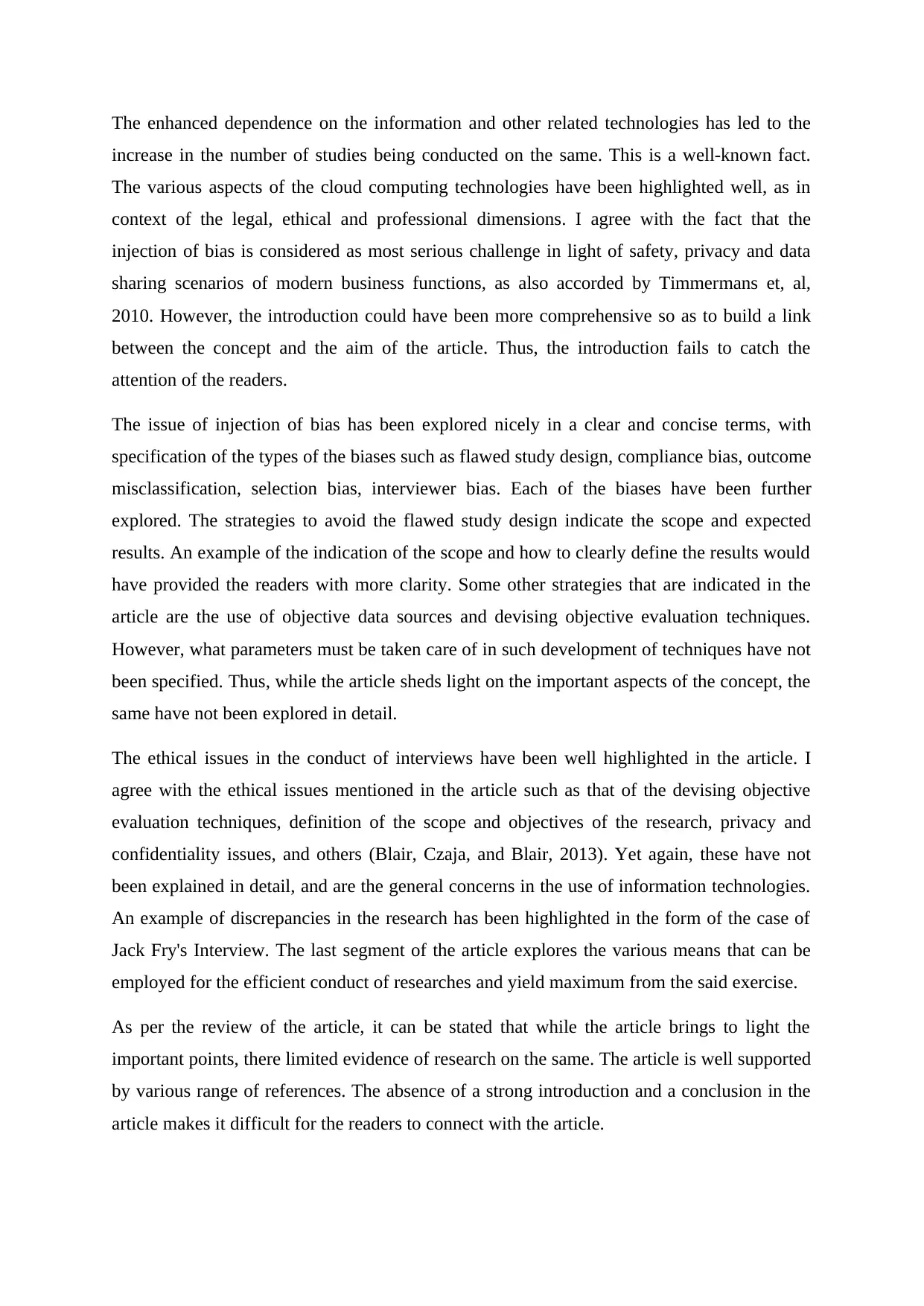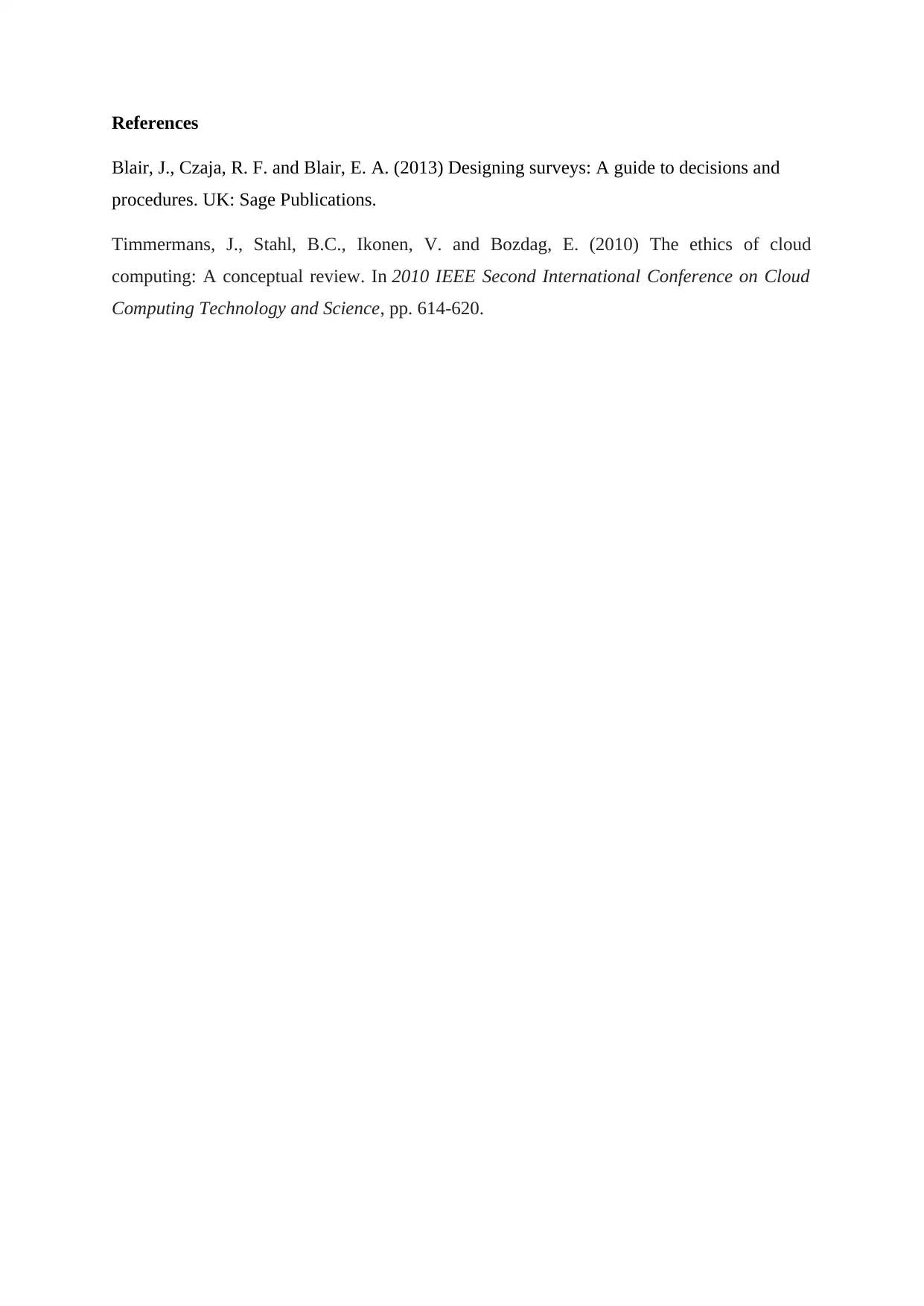Analysis of Research Bias and Ethics in Cloud Computing Articles
VerifiedAdded on 2023/01/03
|3
|577
|72
Report
AI Summary
This report provides a critical review of an article discussing the legal, ethical, and professional aspects of cloud computing research. The review highlights the importance of addressing bias, ethical issues, and data privacy within cloud computing studies. The reviewer agrees with the article's emphasis on bias as a critical challenge but suggests improvements to the introduction. The review further examines different types of biases, strategies to avoid flawed study designs, and ethical issues in conducting interviews. The absence of a strong introduction and conclusion is noted as a weakness. The reviewer emphasizes the significance of objective evaluation techniques, privacy, and confidentiality concerns. Overall, the review assesses the article's strengths in identifying key issues while pointing out areas where more detailed exploration and examples would enhance the reader's understanding. The article is well-supported by various references, further validating its claims.
1 out of 3




![[object Object]](/_next/static/media/star-bottom.7253800d.svg)